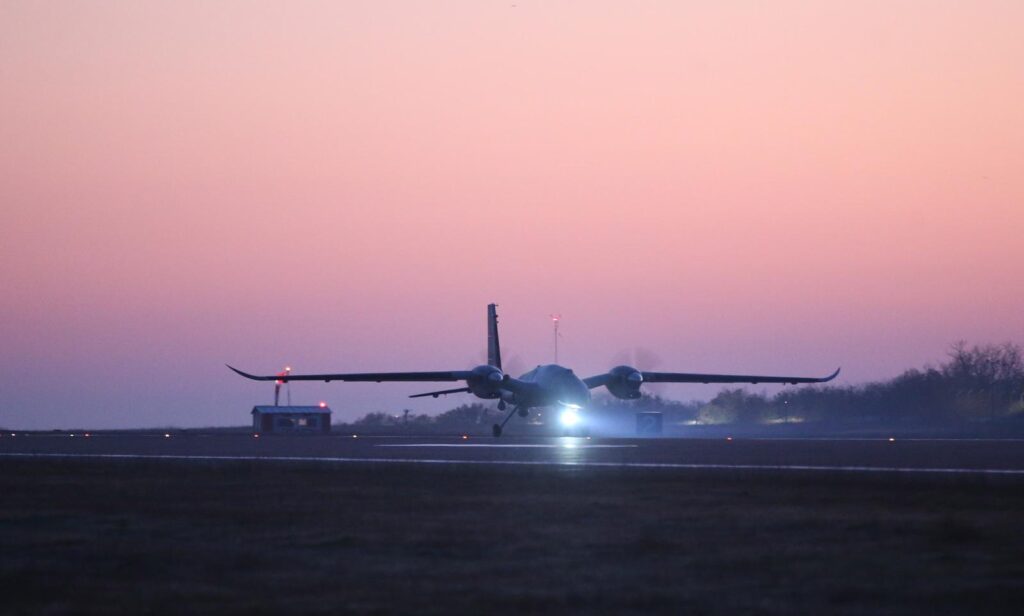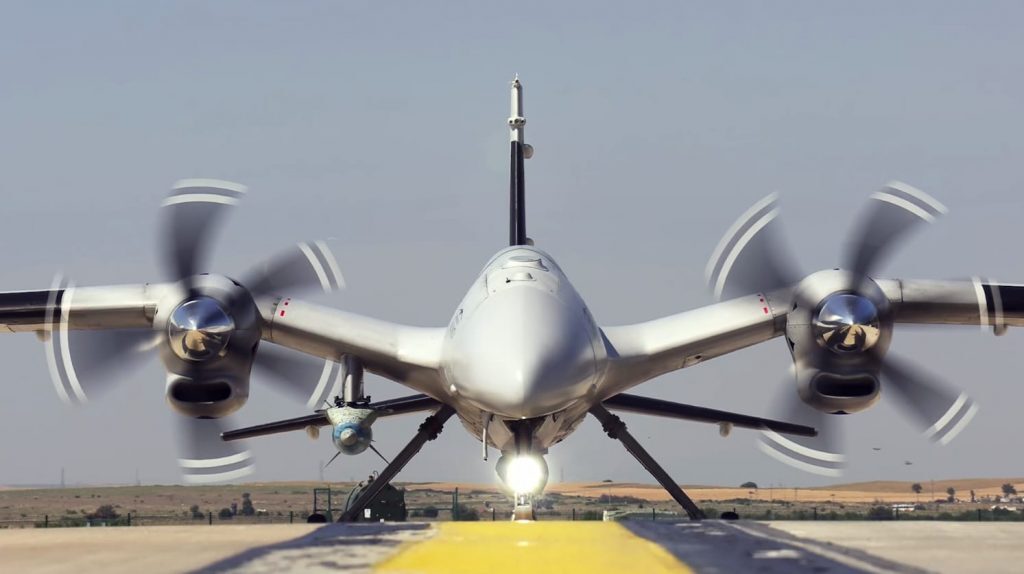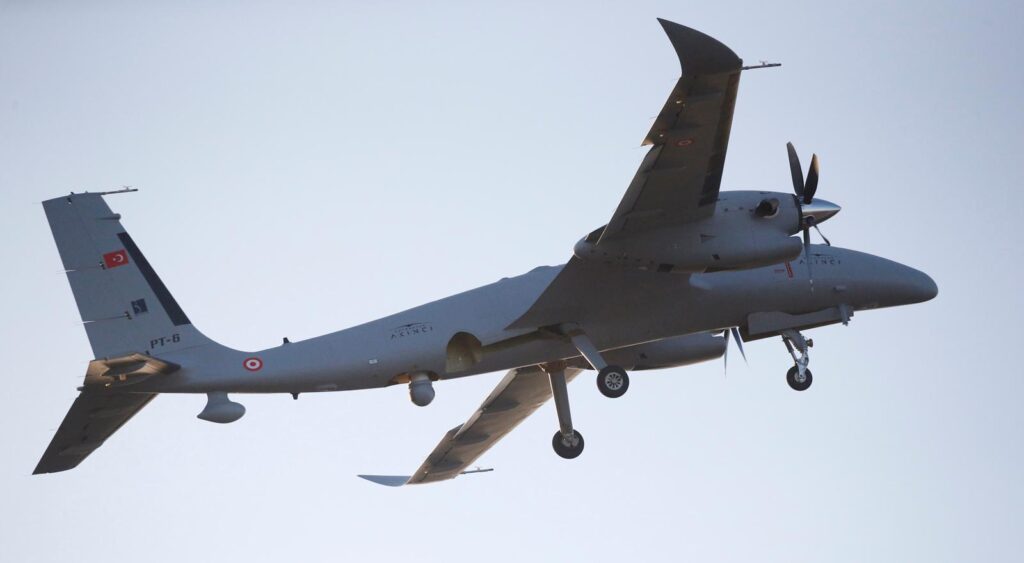The Bayraktar AKINCI-C Unmanned Aerial Vehicle Successfully Completes Its First Flight Test
The 2×850 horsepower (HP) C configuration of the Bayraktar AKINCI unmanned aerial vehicle, developed by Turkish drone manufacturer Baykar, successfully completed its first flight. On February 24, the third variant of the Akıncı unmanned aerial vehicle took off from the AKINCI Flight Training and Test Center in Çorlu, Tekirdağ and remained in the air for more than an hour during the test. During the flight, the aerodynamic parameters of Akıncı-C were also tested successfully.
Bayraktar Akıncı C is a more powerful version of Bayraktar AKINCI A and B. The main distinction between these configurations is the power of the engines. Bayraktar AKINCI A has two 450 horsepower Ivchenko-Progress AI-450S turboprop engines from Ukraine, while Akıncı B has two Pratt & Whitney Canada PT6 turboprop engines with a total of 1500 horsepower. The Akıncı C variant is the most powerful in the class, with a total engine power of 1700 HP from two 850 HP engines. Baykar’s statement did not specify the engine used by Akıncı C. However, these are most likely MS500 Turboprop engines developed by the Ukrainian company Motor Sich.

In comparison to the B and A models, Akıncı C will be able to carry more payload faster, at higher altitudes and for longer periods of time due to its more powerful engines. The ASELSAN-developed MURAD AESA Radar is one of the most significant payloads that will be incorporated into Akıncı C. MURAD AESA radar will also be used on air platforms such as Bayraktar Kızılema and F-16, as well as Akıncı C. In comparison to its predecessor, Akıncı C will also be able to carry more guided bombs, air-to-air missiles, and cruise missiles.

The Bayraktar AKINCI unmanned aerial vehicle, which flew for the first time on December 6, 2019, entered the service of the Turkish Armed Forces on August 29, 2021. The 2X450 HP Bayraktar AKINCI A and 2X750 HP Bayraktar AKINCI B were recently exported to eight countries, as well as Turkish security forces. While Akıncı’s known customers include Azerbaijan, Pakistan, Kyrgyzstan, Ethiopia, Libya and Saudi Arabia, the identity of the remaining two countries is currently unknown. Potential customers include countries such as Qatar, Oman, Nigeria, Kazakhstan and Hungary.

